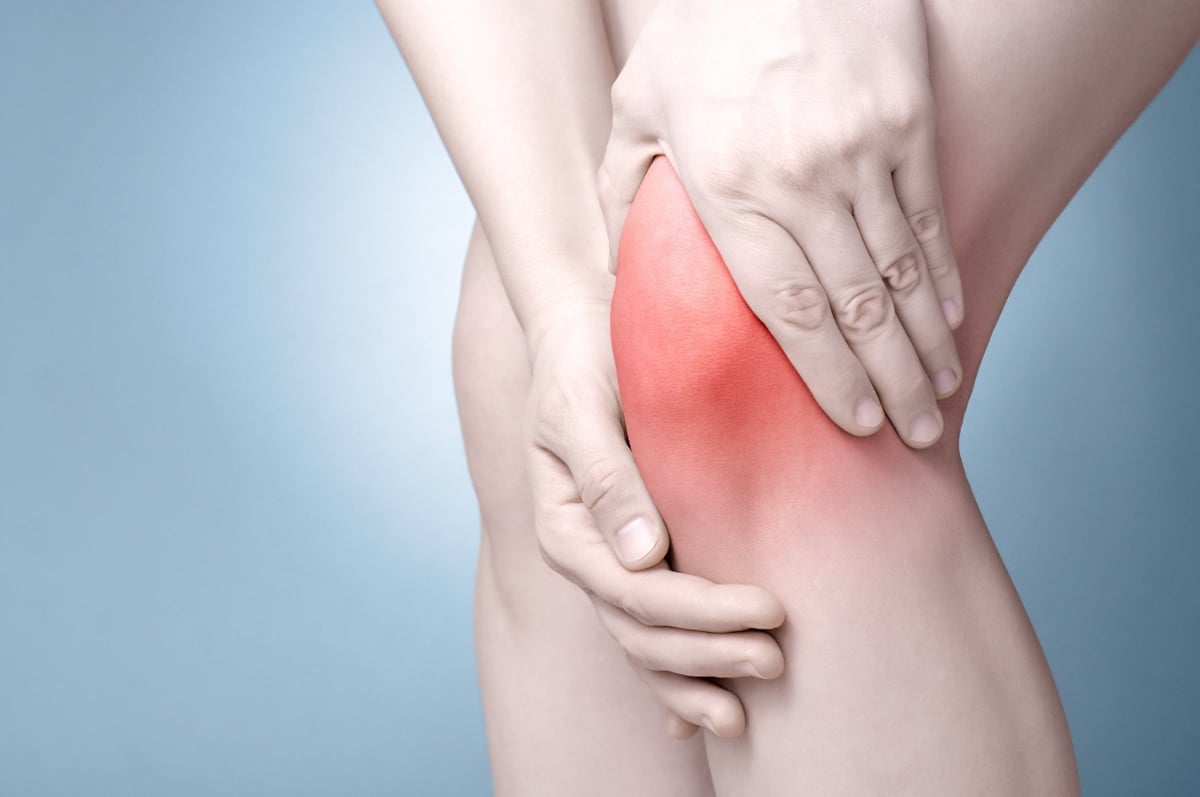When it comes to the knees, minor discomfort can turn into major pain quickly.
Significant forces act on the knee joint every day, as it’s responsible for connecting the two longest mechanical levers in our bodies - the thigh and lower leg. So it’s not a surprise that knee problems represent a third of all doctor’s visits for muscle pain.
In many cases, ignoring knee pain has catastrophic consequences to the joint. Damaged knees can create added problems throughout the body and often require surgery.
So how do you know when knee pain indicates a serious problem? The following situations may require a medical consultation—the sooner the better.
You Feel Something Moving in Your Knee
Sometimes small pieces of cartilage or bone become loose and float around in the joint. These are called loose bodies, and the most commonly affected joint is the knee.
If you have loose bodies in your knee, you may experience:
- Locking of your knee
- A feeling that something is moving around in your knee
- Knee pain
Loose bodies need to be removed to prevent damage to your cartilage. Typically, this can be done by arthroscopy, a minimally invasive surgical procedure.
You Hear a Snap, Crackle, or Pop
Cracking and popping noises in the knee joint are common, and usually don’t indicate a serious problem. However, if you are also experiencing pain or swelling, it could be a sign of something more serious.
Possible conditions include:
- Meniscus tear
- Cartilage injury
- Dislocated kneecap
- Osteoarthritis
See a doctor if you’re hearing noises and feeling pain. If left untreated, some of these conditions can lead to increased pain and permanent damage to the joint.
You Have Pain When Climbing Stairs

According to research conducted by the University of Leeds, pain when walking up steps was the first weight-bearing task in which people with osteoarthritis noticed pain.
In other words, the pain that’s telling you to take the elevator may actually be an early warning sign of a degenerative joint disease.
As the disease progressed, participants in the study noted pain during walking, standing, lying, or sitting.
If you have osteoarthritis, your doctor can work with you to create a treatment plan that relieves pain and helps protect your joints from further damage.
You Kneel a Lot
Prepatellar bursitis is a knee condition that occurs when the bursa - a sac of fluid around the knee - becomes irritated.
Commonly known as “housemaid’s knee” or “preacher’s knee,” it’s often caused by repetitive kneeling. But housekeepers and clergy aren’t the only ones at risk. Roofers, plumbers, coal miners, floor installers, and gardeners are also vulnerable.
See a doctor if you kneel frequently and have:
- Knee pain
- Skin over the knee that’s warm, red, and swollen
- Knee joint stiffness
You Had a (Minor) Sports Injury

You may shrug off knee pain from a sports injury, especially if you’ve been active your whole life and have recovered quickly in the past. After all, discomfort in healthy knees comes and goes.
But here’s the thing, as you age, your joints become more vulnerable to damage. The gradual onset of osteoarthritis usually begins after the age of 40, though people in their 20s and 30s can get it too.
Ligament tears (ACL, MCL, LCL) and meniscus tears are common in younger, active people, from competitive athletes to weekend warriors.
If you have continued pain for a supposedly minor injury, see your doctor.
A New Way to Stop Acute Joint Pain
In recent years, regenerative medicine has offered promising results for tissue renewal, pain relief, and improved function. Flexogenix® has had great success using regenerative medicine to help patients recover from acute and chronic joint conditions. Contact us today to schedule a free consultation.






